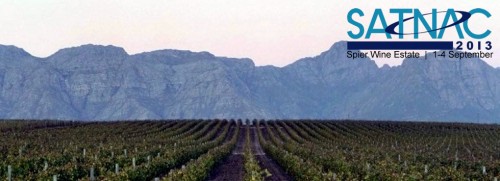Broadband as a catalyst for sustainable African economic development and digital inclusion
The Southern Africa Telecommunication Networks and Applications Conference (SATNAC) was held from 1-4 September 2013 in Stellenbosch, Western Cape, South Africa. The annual event (hosted by Telkom) attracted over 400 delegates.
During the three day conference, a number of sessions and presentations focused on the theme of “Broadband – A catalyst for sustainable economic development and promoting digital inclusion.” Panelists represented both telecommunication operators and international vendors.
The folks at HumanIPO did a great job covering the event. No fewer than 13 articles were published during the three day conference. We’ve highlighted some key points below:
- South Africa’s new Communications Minister says the government and industry must work together to create a working broadband policy.
- There is a need to merge the supply side with the demand side.
- Broadband is an enabler and not a benefit in itself.
- LTE is becoming the mobile broadband technology. Operators should be allowed to use spectrum as they wish, once it is allocated.
- Having a national broadband plan is causally connected to at least a 25% increase in broadband penetration.
- There is a need to be ‘technology agnostic‘ and use both cable and satellite for internet demand.
- South Africa’s telecoms regulator should change its approach to resolve spectrum policy and help achieve government policy goals.
- 4G can be considered “for the haves” since it is deployed in areas that already have data access. What’s needed more is mobile broadband for underserved areas.
- “It is the responsibility of government to ensure that the people of this country have access to the internet.” – Puleng Kwele, chief technical officer at South Africa’s state-owned Broadband Infraco
- Collaboration between stakeholders is essential. It’s the right mix of technology and the right partnerships. Proposed was a scenario where engineers within operators create a plan to bring access costs down and then have government policymakers determine funding and implementation.
- Awareness of the benefits of broadband is paramount to creating jobs and driving demand for services. The issue isn’t with using mobile devices or social networking but more advanced tasks.
- Last mile is a key question for operators if they are to maximize broadband uptake. The distance between customer and provider needs to get shorter.
- Spectrum should only be given to operators who will be able to use it efficiently. Those operators are generally those who have shown proper investment.
Of course, such rhetoric is useless unless it reaches leadership that can actually solve the digital divide. In closing SATNAC, FibreCo CTO Marius Mostert commented on how ten years of dialogue has not “connected the unconnected.” Preaching to the choir will not solve Africa’s telecommunications challenges.













 Twitter
Twitter Facebook
Facebook Pinterest
Pinterest